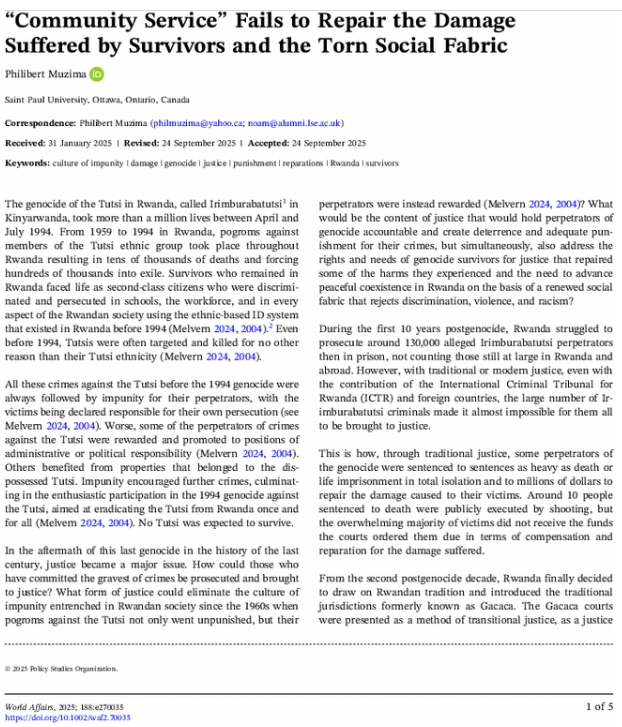
A new commentary published in World Affairs by Dr Philibert Muzima of Saint Paul University, Ottawa, sheds fresh light on the continuing failure of Rwanda’s post-genocide justice system to deliver genuine reparation for survivors of the 1994 Genocide against the Tutsi.
In his article, “Justice Post-Tutsi Genocide in Rwanda: When ‘Community Service’ Fails to Repair the Damage Suffered by Survivors and the Torn Social Fabric,” Dr Muzima argues that despite the scale and innovation of Rwanda’s community-based Gacaca courts, the justice process has too often benefitted perpetrators and the state rather than survivors themselves.
The piece revisits the history of the Travaux d’Intérêt Général (TIG) – community service imposed as an alternative to prison for some perpetrators. While TIG helped reduce prison overcrowding and generated significant government revenue, Dr Muzima documents that survivors received neither financial compensation nor meaningful restoration. Instead, he shows that “justice became incomplete,” failing to provide material or psychological repair to those who lost family, homes, and livelihoods during the genocide.
Citing researchers and survivor advocates including Albert Gasake and Geneviève Parent, the paper concludes that restorative justice without reparation is not justice at all. Survivors, it argues, continue to live in poverty and insecurity, often without access to the healthcare, housing, education, or psychological support they are entitled to.
More than thirty years after the genocide, many survivors are still waiting for the reparations that would acknowledge their loss and help rebuild their lives. As Dr Muzima notes, “If it’s not victim-centred, it’s not restorative – and it’s not justice.”
You can read the full article here.
